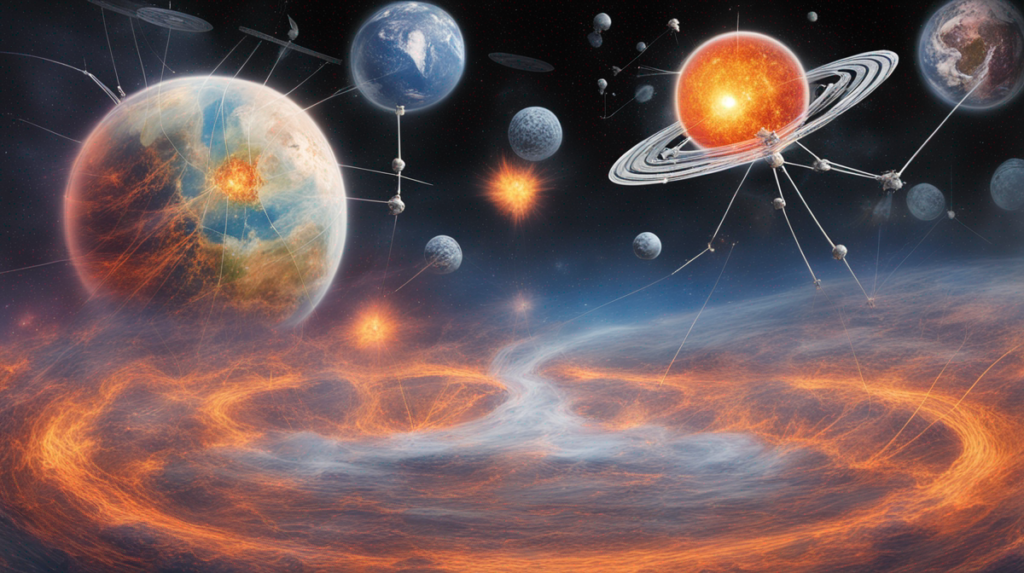Space weather, a term that may not resonate with the public as much as global warming, has significant relevance in our daily lives, particularly due to its impact on satellite communication. Indeed, our growing reliance on technology in today’s interconnected world makes understanding the effects of space weather crucial. Furthermore, recent research has hinted at potential health implications, opening up a novel realm in health science.
What is Space Weather?
Space weather refers to the fluctuation in the environmental conditions in space, influenced by solar activities such as solar flares and solar wind. These events can perturb the Earth’s magnetic field and ionosphere, consequently affecting functionality and reliability of satellite technology— the cornerstone of communication in the modern era.
Impacts of Space Weather on Satellite Communication
The repercussions of space weather on satellite communication can be severe. Satellites can experience malfunctions or total failure due to intense solar activities. This can affect a wide range of services including television broadcasts, Internet connectivity, GPS navigation, and telecommunication services, potentially leading to significant economic losses.
Moreover, operations heavily reliant on satellite communication, such as aviation, shipping, and defense, can experience disruptive changes during severe space weather events. This makes understanding and predicting space weather an urgent priority.
(Read Also: Trailblazers in the Cosmos: Unveiling the Pioneering Women in Space Exploration and Their Unseen Health Challenges)
The Health Angle: Space Weather and Human Health
With our increasing dependence on technology, disruption in satellite communication from space weather isn’t just an inconvenience, it could directly impact healthcare services. Telemedicine, remote patient monitoring, transmitting of health records—all these crucial services could be interrupted.
However, a more intriguing aspect is the possible influence of space weather on human physiology directly. Recent studies have suggested a link between space weather and certain health issues, such as cardiovascular events. Though the research is in its preliminary stages, it opens up a new avenue in environmental health study.
(Read Also: Beneath the Cosmic Rays: Impacts of Solar Storms on Earth and Our Health)
How to Mitigate the Impact
While we cannot control space weather, its impact can be mitigated. Predictive space weather models are essential tools for this. Advanced warning systems can enable proactive measures to safeguard satellite infrastructure and prepare for possible disruption in services.
Furthermore, the inclusion of space weather study in health-related research is required to understand potential risks and devise preventative strategies. Incorporating space weather into public health policy could help safeguard both our digital infrastructure and our health.
The health science community must spearhead awareness drives to elucidate the probable health effects of space weather on the general populace. These efforts could not only help in mitigating the impact but also in evolving potential coping mechanisms to combat the same.
As the mysteries of space weather continue to unfurl, the convergence of astronomy and health sciences could emerge as a new frontier in understanding and coping with this celestial phenomenon. So, let’s keep our eyes peeled to the skies, not just for the sheer awe they inspire, but for the revelations they hold for our health.

